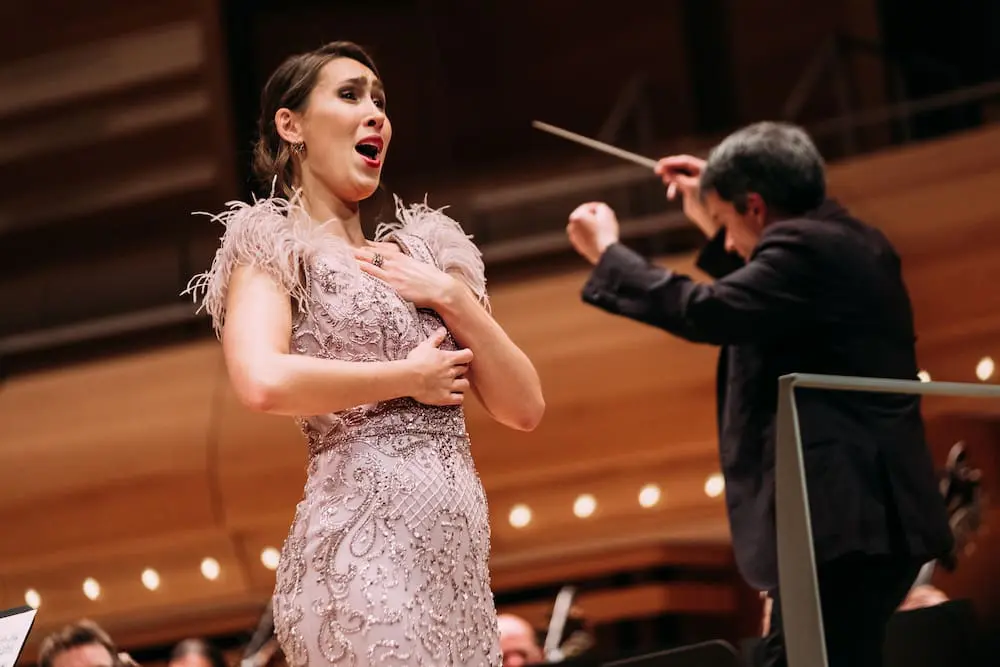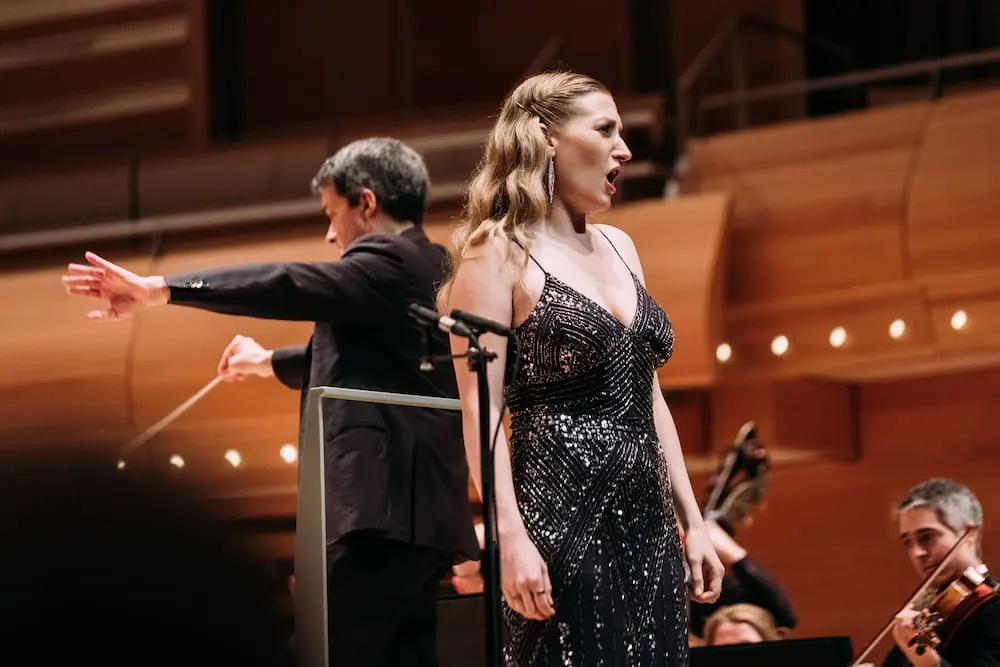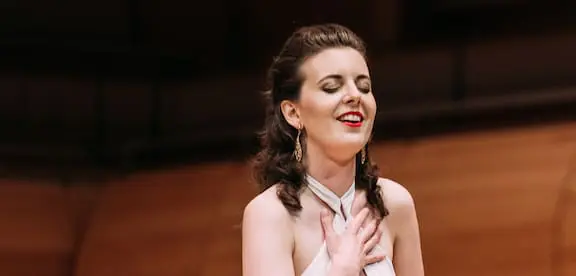Eleven days of absurd artistic competition came to an end in a two hour squeeze on Thursday night. At the end of the marathon even our famously grateful Canadian audiences could not find the strength for standing ovations. I can’t imagine how the singers felt.
I’ve been sitting farther and farther from the stage over the past three nights of the aria semis and finals, a slow trip away from the singers that started in Bourgie Hall and jerking back involuntarily from badly-controlled power, and ended in Maison Symphonique. The distance made a shocking difference; it seems the Maison’s acoustics are not as even as I remembered them. Subtleties were swallowed, the orchestra dominated more voices, and I think I understand why the judges have advanced some singers that, from the parterre, sounded brash and unsophisticated. Back here the space softened their edge and muddied the difference between an emotional performance and a mechanical one. Dear gentle Bryan Murray never had a chance.

German mezzo-soprano Valerie Eickhoff performing in the final round of Aria division at the Concours Musical International de Montréal Ⓒ Tam Photography
There is also that desperate, magical energy at the end of a competition when even the phlegmatic personalities find some hidden—because easily disappointed—passion. Mezzo-soprano Valerie Eickhoff went for it, sounding her best of the three rounds, and ending with “Una voce poco fa” that she sang at the very beginning of the competition. Not as confident as you might expect for a go-to aria, but warm and centered, with a dollop of cream.
Not enough, I’d predict, to stand against the evening’s duel for first prize between mezzo-soprano Simone McIntosh and soprano Sarah Dufresne. I’d give McIntosh the edge, and only slightly, for the heft and bite she found across music as different as Handel and Rossini: a crispy, poignant aria from Julius Ceasar and a relentlessly charming “Naqui’all affanno … Non più mesta” from Cenerentola as a finale. You couldn’t help but smile. Her lungs are an anatomical mystery but her heart isn’t a matter for science—it’s for the stage where she belongs. One of the great pleasures of following all the rounds of a competition is having time to fall for a singer.

Canadian soprano Sarah Dufresne performing in the final round of Aria division at the Concours Musical International de Montréal Ⓒ Tam Photography
Dufresne’s final program had more variety; Pamina’s despairing aria from The Magic Flute—which she also sang in the first round—Gilda’s yearning “Caro nome” from Rigoletto—to which she brought an unfamiliar lustiness, and it worked!—and Juliet’s innocent “Ah! Je veux vivre”. Her clarity and vocal dexterity are already astonishing, and she’s only 27. Listening to her I kept seeing a glittering tower of champagne glasses with the foam running down.
Nils Wanderer either had an off night or the Maison was designed to discriminate against countertenors; from the balcony his Mozart and Handel lacked the detailing and mobility of earlier performances, and an exquisite performance of an unsettling Elgar aria probably wasn’t enough to compensate. He glided through its sardonic orchestral lines like a serpent, and the feeling followed me home.
Hugo Laporte also sang.
The winners were announced a boozy hour later: in Aria, Simone McIntosh won first place, Sarah Dufresne second, and Valerie Eickhoff third; and in Art Song Meredith Wohlgemuth won first place, Harriet Burns second, and Bryan Murray third.
Wohlgemuth also won the touring prize, the French art song prize, and the career development prize—the competition’s biggest purse. The semi-finalist prize for best performance of a Canadian work went to Michael Lafferty. Two prizes for the best Canadian competitors went to Deepa Johnny and Simone McIntosh, who also picked up several other special prizes. Harriet Burns won an Art Song prize and a vocal residency at McGill so we will be able to hear her again soon, yay. The pianist award went to Jinhee Park, and public prizes went to Deepa Johnny in art song and Nils Wanderer in Aria.
Watch the CMIM competition ON DEMAND right here.
Opera Canada depends on the generous contributions of its supporters to bring readers outstanding, in-depth coverage of opera in Canada and beyond. Please consider subscribing or donating today.















